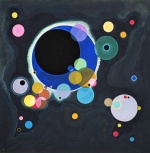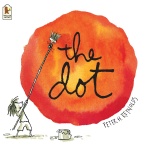Playing with the Unexpected
November 05, 2022
Quote of the Week
"Life is playfulness. We need to play so that we can rediscover the magic all around us." -- Flora Colao
Two Kinds Of Intelligence
 Two Kinds of Intelligence
Two Kinds of Intelligence
There are two kinds of intelligence: one acquired,
as a child in school memorizes facts and concepts
from books and from what the teacher says,
collecting information from the traditional sciences
as well as from the new sciences.
With such intelligence you rise in the world.
You get ranked ahead or behind others
in regard to your competence in retaining
information. You stroll with this intelligence
in and out of fields of knowledge, getting always more marks on your preserving tablets.
There is another kind of tablet, one
already completed and preserved inside you.
A spring overflowing its springbox. A freshness
in the center of the chest. This other intelligence
does not turn yellow or stagnate. It’s fluid,
and it doesn’t move from outside to inside
through conduits of plumbing-learning.
This second knowing is a fountainhead
from within you, moving out.
-- Rumi, Translated by Coleman Barks
--
Rumi's two-part concept of hard-fact and heart-based intelligence serves children, families as a whole and educators. It lucidly reminds that intelligence -- the courage to act, to know ourselves deeply, to trace the feelings of others -- indwells in us. We are built to read and relate to the world -- unexpected twists and turns, small and big -- through our inner devices. In our social set-ups too caught up with worldly skills, grades and rankings, especially for children, we can draw from Rumi's call for acknowledging and trusting our innate competencies of playing with the flow of events and entities being sent our way. This the first and core form of intelligence to be nurtured in children. But also in adults.
Reading Corner
 Title: The Dot
Title: The Dot
By: Peter H. Reynolds
Ages: 7-9 year olds
"With a simple, witty story and free-spirited illustrations, Peter H. Reynolds entices even the stubbornly uncreative among us to make a mark — and follow where it takes us. Her teacher smiled. "Just make a mark and see where it takes you." Art class is over, but Vashti is sitting glued to her chair in front of a blank piece of paper. The words of her teacher are a gentle invitation to express herself. But Vashti can’t draw - she’s no artist. To prove her point, Vashti jabs at a blank sheet of paper to make an unremarkable and angry mark. "There!" she says. That one little dot marks the beginning of Vashti’s journey of surprise and self-discovery. That special moment is the core of Peter H. Reynolds’s delicate fable about the creative spirit in all of us." -- Publishers
Find the book here.
The Dot was made into an animated short film that also won the 2004 Chicago International Children's Film Festival: 2nd Prize "Animated Short Film or Video". Take a sneak-peek of 'The Dot' song here.
Be the Change
We take you to Improvisational Games (‘Improv’ as shorthand) for this weeks’ be-the-change activity. Improv is a social art form of sort that in the context of children helps them become more playful, adaptive, embracing, gracious, more ‘yes’ oriented to the changing circumstances and relations that will undoubtedly land their way in life. To think on their feet, to keep their inborn emotional intelligence active. Take your pick from any of these activities. Our favorites are the prop game and pop corn. Try them out and let us know where they took you!
Bonus: Parents and care takers can savor more of ‘Improv’ with this perspective-shifting book by Patricia Ryan Madson. Her book opens with Rumi’s poem ‘two kinds of intelligence’ that we were most inspired to feature above.





